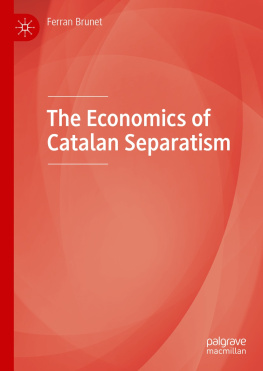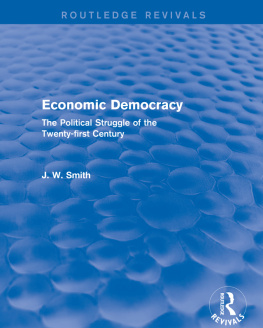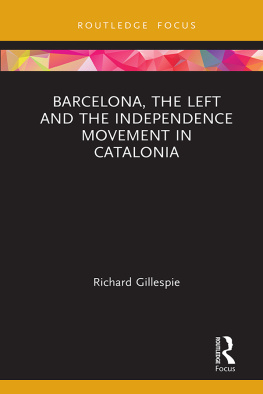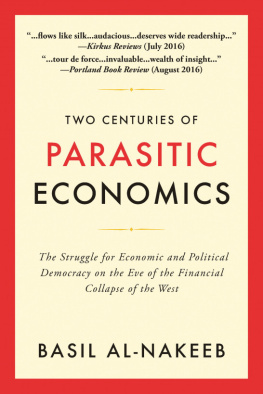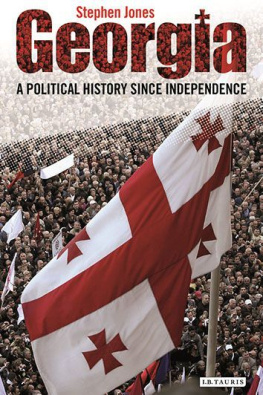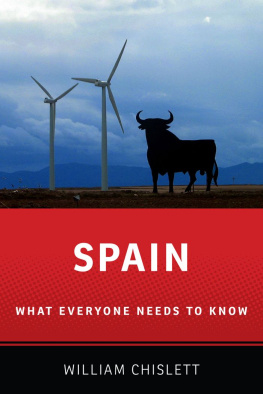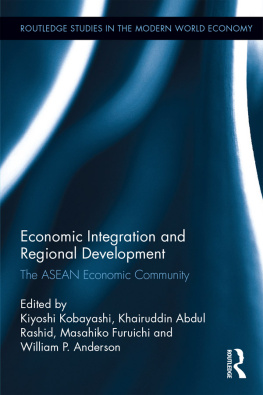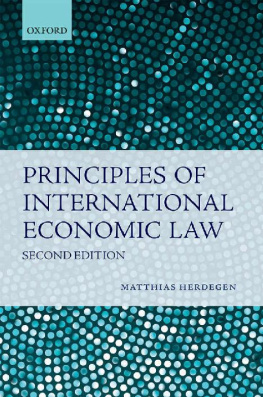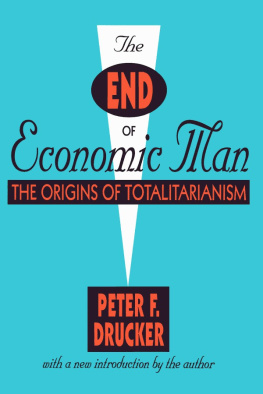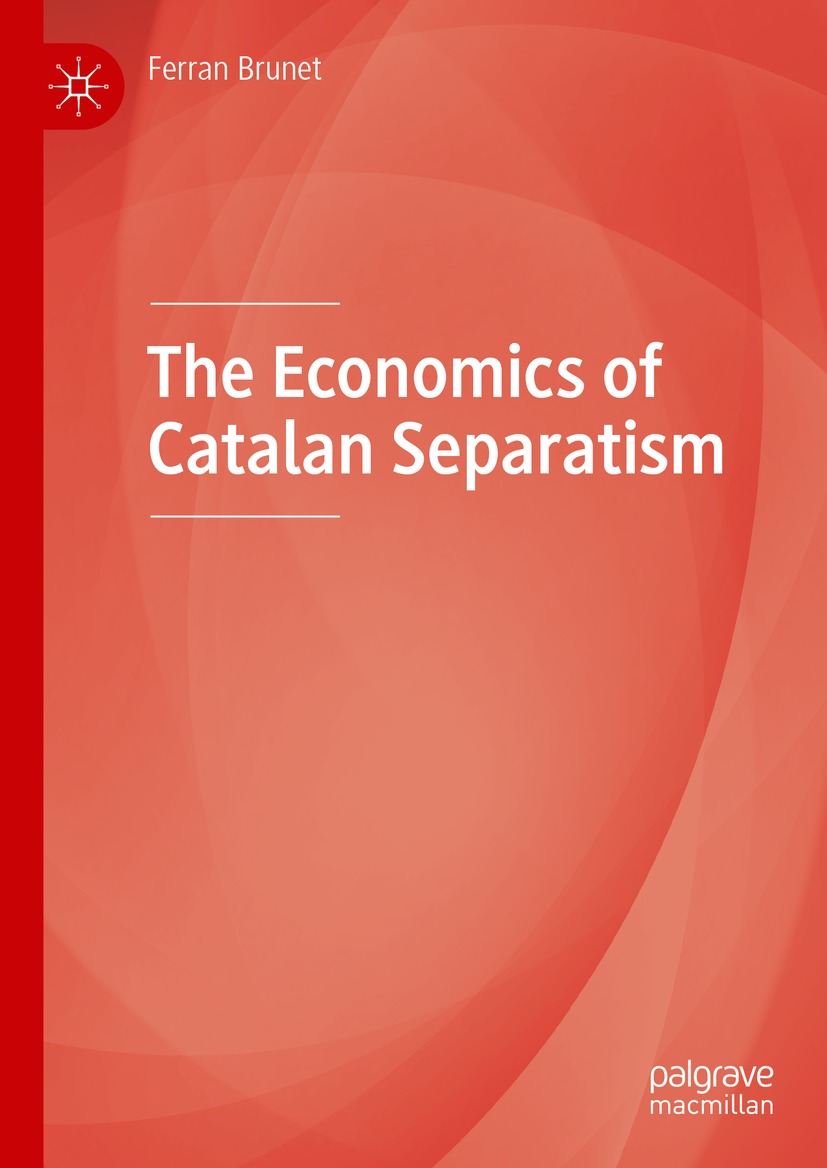Ferran Brunet
Faculty of Economics, Autonomous University of Barcelona, Bellaterra, Spain
ISBN 978-3-031-14450-9 e-ISBN 978-3-031-14451-6
https://doi.org/10.1007/978-3-031-14451-6
The Editor(s) (if applicable) and The Author(s), under exclusive license to Springer Nature Switzerland AG 2022
This work is subject to copyright. All rights are solely and exclusively licensed by the Publisher, whether the whole or part of the material is concerned, specifically the rights of reprinting, reuse of illustrations, recitation, broadcasting, reproduction on microfilms or in any other physical way, and transmission or information storage and retrieval, electronic adaptation, computer software, or by similar or dissimilar methodology now known or hereafter developed.
The use of general descriptive names, registered names, trademarks, service marks, etc. in this publication does not imply, even in the absence of a specific statement, that such names are exempt from the relevant protective laws and regulations and therefore free for general use.
The publisher, the authors, and the editors are safe to assume that the advice and information in this book are believed to be true and accurate at the date of publication. Neither the publisher nor the authors or the editors give a warranty, expressed or implied, with respect to the material contained herein or for any errors or omissions that may have been made. The publisher remains neutral with regard to jurisdictional claims in published maps and institutional affiliations.
This Palgrave Macmillan imprint is published by the registered company Springer Nature Switzerland AG
The registered company address is: Gewerbestrasse 11, 6330 Cham, Switzerland
Foreword
Catalonia is one of the 17 autonomous regions of the Kingdom of Spain. It is located in the northeast of Spain, below the Pyrenees and it borders with France. It has an extension of 32,108 square kilometres, somewhat larger than Belgium, and a population of seven and a half million. Approximately half of the voters are in favour of secession, while the other half are not.
While the separatists and secessionists claim that Catalonia is not Spain, it is necessary to remember, looking back into history, that the territories of present-day Catalonia formed part of Roman Hispania, with one of its capitals in Tarragona, and later, without there being any problem, it formed part of the Visigothic Kingdom centred around Toledo.
It was only with the rupture of the unity of the peninsula brought about by the Reconquista that the Kingdom of Aragon and the county of Barcelona came into being, and these went their own way, in parallel with the other peninsular kingdoms of Castilla, Portugal, Navarre and the kingdom of Granada.
The question of separatist pretensions for Catalonias independence from the rest of Spain is not new, and it always surfaces in moments of weakness in Spain. This is what happened when, Spain being at war with France, the clergyman Pau Claris proclaimed an ephemeral Catalan republic in 1640 which, after surrendering to the protection of Luis XIII, culminated in French sovereignty over the Catalan territories north of the Pyrenees.
After this episode, the end of the War of the Spanish Succession in 1714 saw how some Catalans erred by supporting the House of Habsburg instead of accepting, as they had done initially, that a grandson of Luis XIV, Felipe V, succeed Carlos II and occupy the Spanish throne.
Felipe V eliminated a large part of the Catalan institutions and unified the Peninsular and Overseas Market by means of the Decree of the New Plan of 1715, approved in a manner resembling France, centralised in Paris.
Despite the criticisms levelled against this Decree by todays separatists, that unification benefitted the Catalan economy by creating an integrated Spanish market, something which put the Catalan economy in an advantageous position within Spain, an advantageous position that was consolidated and extended with the customs protectionism of the nineteenth and twentieth centuries. Such protectionism was very favourable for Catalan industries, which saw how the Spanish market was reserved for them through the application of high import duties, restrictive import quotas and other protectionist measures adopted in Madrid by governments influenced and pressured by Catalan protectionists.
During the Peninsular War, Napoleon Bonaparte turned Catalonia into a French province between January 1812 and May 1814 and, taking advantage of the cantonal confusion of the First Spanish Republic, Baldomer Lostau, the first Catalan member of the Socialist International and member of Barcelona Provincial Council since 1872, proclaimed an ephemeral Catalan state within the federal Spanish Republic in March 1873, which failed when the government of the First Spanish Republic reacted by annulling the independence proclamation two days after it was issued.
In the midst of the romantic nationalist enthusiasms of nineteenth-century Europe, a Catalan proto-constitution, known as the Bases, was drafted in Manresa in 1892. In the twentieth century, Solidaritat Catalana was established. It almost monopolised Catalan representation in the Congress of Deputies between the elections of 1907 and its rupture as a consequence of the events known as the Tragic Week in 1909.
With a pragmatic attitude, which has always been the most advantageous one for Catalonia with regard to its relations with the central government, the leaders of the Lliga Regionalista, Enric Prat de la Riba and Francec Camb, managed, without aiming for Catalonias independence, to bring together Catalonias four provincial councils as a regional government known as the Mancomunitat de Catalunya, or Commonwealth of Catalonia. This carried out an interesting task of administration from 1914 to the coup dtat of General Miguel Primo de Rivera, which was in response to the disturbances during the separatist demonstration of 11 September 1923. The Catalan bourgeoisie supported him since it suppressed social disorder.
Later, with the arrival of the Second Spanish Republic, Colonel Francesc Maci extracted the establishment of the Generalitat de Catalunya from the republican government that had recently been installed after the elections on 14 April 1931. He was its first president, a position he held until his death, upon which he was substituted by Lluis Companys in 1933. With the establishment of the Generalitat, Macis initial proclamation of a Catalan republic as a member state of an Iberian Federation was annulled.
This republican Generalitat, governed by the Statute of 1932, ceased functioning normally when President Companys attempted to instal Estat Catal within the Spanish Republic in October 1934 with a failed uprising. Accused of rebellion against the Spanish Republic, he was imprisoned along with the other members of his government.
Nevertheless, after the elections held in February 1936, which were won by the Frente Popular, Companys and the others who had been imprisoned for rebellion were released and the Generalitat de Catalua was re-established. During the Spanish Civil War (19361939) it functioned precariously because of its conflict with the government of the Republic about the exercise of powers, and also because of the disputes between the parties and unions that supported it, which led to a kind of internal civil war in May 1937, something that strengthened the role of the Communist Party.

